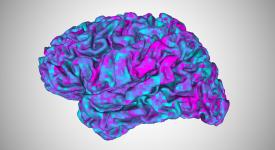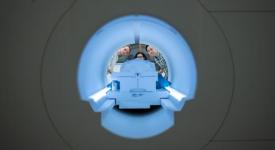AI Brain Decoder Moves Closer to Real-World Use for People With Aphasia

02/07/2025 - UT Austin researchers have improved their AI-powered brain decoder, allowing it to translate thoughts into continuous text with just one hour of training—far less than the original 16-hour process. This advancement makes the technology more accessible, particularly for individuals with aphasia, by enabling communication without requiring spoken language comprehension. The team is now collaborating with experts in aphasia research to explore its potential for real-world applications.





